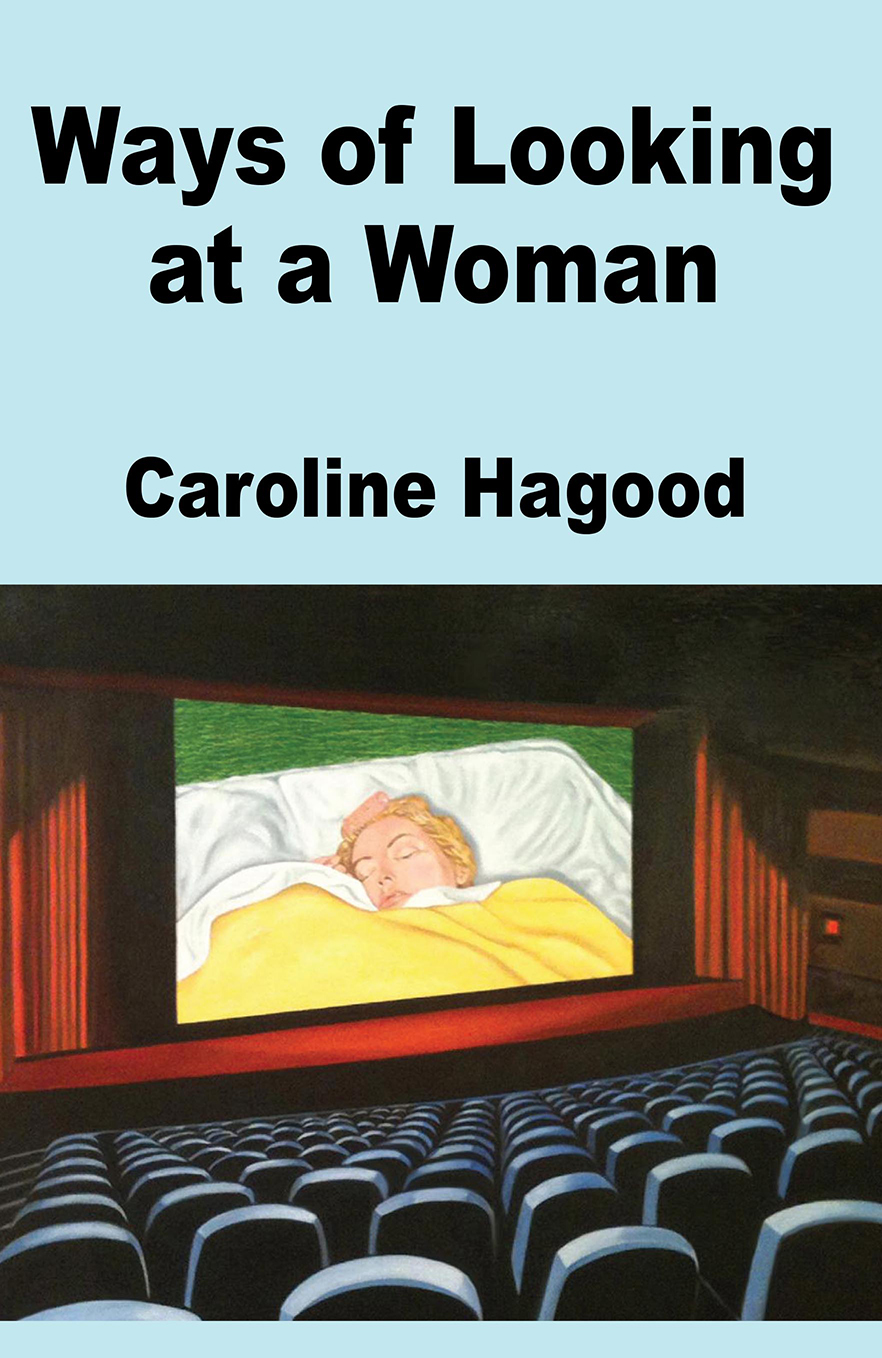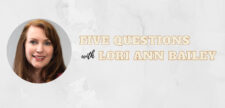Caroline Hagood: Five Questions with the Author
It is always a pleasure to have talented authors share their work and their process with me and my readers in this Five Questions series. My guest today is poet, essayist, scholar and professor Caroline Hagood.
Caroline Hagood: How do you describe your latest work Ways of Looking at a Woman? Do you call it an essay collection? What else do you want readers to know about it?
I think of Ways of Looking at a Woman as a book-length (for poetry, which is always shorter) poetic essay or lyric essay. Those who write about this hybrid form, such as John D’Agata, have questioned whether the term lyric essay does the best job of describing this slippery form. But I stick with it for lack of a better one. Ideally, I’d come up with a brilliant new term but have nothing on that front just yet.
In Ways of Looking the hybridity itself is important since I’m asking what the words woman, writer and mother mean. Ultimately I find that they, like the lyric essay, slip out of our realms of definition.

Hanging Loose Press, 2019
Caroline Hagood: You are known for your poetry. When did you first start writing? Do you have any early example of poems you’d like to share?
The first question is easy to answer. I felt like a poet as soon as I could speak as a result of a very dedicated mom who started writing down my “songs,” which we would later come to call poems. I think it’s a really important thing to do for your kids – to make them feel like they’re generating something creative that matters when they’re babbling at you or scribbling with crayon on paper.
Share an early poem? That’s a more embarrassing question. Okay, I’ll share the end of a poem I wrote for my best friend, Miku, in middle school. I adored her and still do. It was kind of like an ode to the sleepover. The poem was called “You.” Don’t laugh.
When we fall asleep next to each other,
I lay my head on the warmest part of your neck,
wrap arms, legs, whatever I can around you
I tell you this is comfort, but I am thinking this is love
We talk in whispers till we are unable to hear anything
But the other’s voice, and unable to smell anything but the other’s smells
And as we fall asleep I think,
If there were stronger words than I love you,
I would figure them out
And paint them on your forehead
(Note: No laughter. Only an “Aww…” JTA)
My first book of poetry, Lunatic Speaks, came out in 2012.

FutureCyclePress
Caroline Hagood: What can you tell beginning poets (or essayists) about getting published?
First, I would tell them that often the thing that separates the person who gets published from the one who doesn’t is sheer stubbornness. Keep taking writing classes, writing, revising, and submitting, and one day it will all pay off. Find good mentors as well.
Here are a few resources:
First, there’s a great list of publications that take emerging writers:
http://www.aerogrammestudio.com/2013/11/21/25-publication-opportunities-for-emerging-writers/
Second, check out this amazing database where you can search for lit mags for your work by genre, etc:
https://www.pw.org/literary_magazines
My press, Hanging Loose, also has a magazine with a section focused on the work of high school writers, if that’s your age group:
Hanging Loose also publishes adult writers. This press published my second book of poetry in 2015:

Caroline Hagood: The BIG question: you have two young children and an academic career. When do you find time for creative writing?
Right now, for instance, it’s 4:30 in the morning. I’m up before anyone else to answer these question before I go teach at Fordham University. My kids wake up early. So 4:30 it is. I do the same thing with creative writing. I write in the early morning or late at night, while on the subway, while eating, drinking and doing just about everything else. I also think the Notes function on my phone is amazing because I just write all the time there. Or I use the Dictation function when my hands are full, which is always. The cool thing about these methods is that it all feels fragmentary. But before you know it, you have a book.
Caroline Hagood: What are you working on now?
I’m working on something that’s in the early stages, so it looks like me in front of a word document that’s full of wacky ideas that don’t yet cohere. But, hopefully, next time we talk I’ll be able to tell you about my great big shining book.
For more see: Poems and Essay Caroline Hagood
Categorised in: Five Questions Series, Writing
This post was written by Julie Tetel Andresen
You may also like these stories:
- google+
- comment



